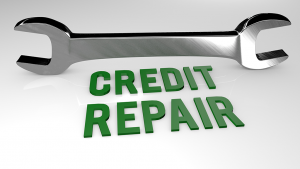Why Isn’t My Credit Score Improving? Here’s What to Do

How to Use Debt Consolidation to Boost Credit Scores
04/06/2022
How to Get a High-limit Credit Card With Poor Credit
04/20/2022 A good credit score can open the door to new financial possibilities.
A good credit score can open the door to new financial possibilities.
You can unlock more attractive financing options for major purchases with the right score. And who doesn’t want to take advantage of the best rates and terms when making a major purchase such as a house or car?
If you want to improve your credit score, you already know that a better score could save you thousands on big purchases. But if you’ve been working to increase your credit score and haven’t seen results, it’s natural to ask yourself, “why isn’t my credit score increasing?”
The good news is that it’s possible. You just need to make a tweak to see the results you are hoping for. The fix might be as simple as giving your score a little time or adding a credit tradeline to add more positive information to your credit report.
Let’s take a closer look at why your credit score might be at a standstill. Plus, see what changes you can make to give it the boost you’ve been working for.
Why Isn’t My Credit Score Increasing?
Multiple factors play into your credit score. Things like your payment history and the length of your credit history can have a big impact on your score.
But with so many factors at play, an improvement on one part of your credit report may be canceled out by a negative mark added somewhere else. So, it can take a little bit of detective work to find out why your credit score isn’t increasing.
We’ll take a closer look at why your credit score might be at a standstill below. As we explore the possibilities, think about how each factor might be playing out in your own credit management.
Missed Payments in Your Past
Your payment history accounts for 35% of your FICO score. That makes it the biggest factor taken into account.
If you have any missed payments on your credit report, that will hold your score back. Even just one or two missed payments can significantly impact your credit score.
Unfortunately, a late payment can stay on your credit report for as long as seven years. But the good news is that the negative impact of the payment diminishes over time. Of course, you’ll need to consistently make on-time payments to give this part of your credit score a boost. 
High Debt Burden
If you have a high debt burden, managing your finances can be stressful. But that’s not the only impact on your personal finances. A high debt burden can also hurt your credit score.
Specifically, your credit score takes your credit utilization ratio into account. Credit utilization reflects the total amount of debt you have in your revolving credit accounts. And it accounts for 30% of your credit score.
The most common type of revolving debt is credit card debt. For example, let’s say that you have a credit card with a limit of $10,000. Currently, you are carrying a credit card balance of $5,000. With that, your credit utilization ratio would be 50%.
Most personal finance experts recommend keeping your credit utilization ratio below 30%. A higher credit utilization rate will likely have a negative impact on your credit score.
Short Credit History
The length of your credit history accounts for 15% of your credit score.
A long history of responsible credit management leads to a higher credit score. After all, creditors want to know that you can manage your funds with a long-term outlook. If you don’t have a long tenure of making on-time payments, creditors may be less willing to work with you.
With that, it can be difficult to grow your credit score too quickly if you have a short credit history.
Too Many Credit Inquiries
When you apply for a new credit account, that inquiry is added to your credit report. Your credit score will often suffer if you’ve recently applied to many new credit accounts. That’s because new credit inquiries account for 10% of your credit score.
The reasoning behind this factor is that lenders view the action of seeking too much new credit as risky. If you obtain too much new credit too quickly, your finances might not be able to handle the new debt burden. And that’s a big concern for other potential lenders.
Importantly, not all inquiries impact your credit. Hard credit inquiries where the lender pulls your credit report often have a negative impact. But soft credit inquiries shouldn’t impact your score at all. Additionally, the newer FICO scoring model allows for inquiry grouping for certain types of loans within a 45-day period.
For example, let’s say that you are considering a student loan refinance. You could gather quotes from different student loan lenders through a hard credit pull to find the best rate. But all of those inquiries would be grouped into one single credit inquiry. That means that you can shop around without taking additional hits to your credit score. However, this inquiry grouping feature only comes into play with student loans, auto loans, and mortgages.
If you have too many recent inquiries on your credit report, that could be one reason why your credit score isn’t going up. Want to learn more about how credit inquiries could be killing your credit score? Check out this full piece.
Lack of Different Types of Accounts
Credit mix is a final factor that your credit score takes into account. Although your credit mix only represents 10% of your FICO score, every little bit counts when working to improve your credit.
A good credit mix includes a variety of installment loan products and revolving credit products. Installment loan products include mortgages, auto loans, and student loans. On the other hand, revolving credit products include credit cards or home equity lines of credit.
If you have both types of accounts on your credit report, that’s often a boon for your credit score. But if you are sticking with either revolving credit accounts or installment loan products, that could negatively impact your credit score.
Incorrect Information on Your Credit Report
If you aren’t sure which factor is pulling down your credit score, take a minute to pull up a free copy of your credit report. With the document in hand, look for any of the negative marks we discussed.
It’s possible that you’ll find inaccurate information littered across your credit report. If you find incorrect or missing information, it is important to remove the information as soon as possible.
In some cases, you can tackle a couple of instances of misreported information. To do so, reach out to the creditor with a formal letter that asks them to make the change. Hopefully, you’ll find a responsive lender that is ready to help.
But in other cases, you might be dealing with a case of identity fraud. Criminals can take your information to open up credit accounts, which are, of course, misused. If you are facing one of these situations, it is often a good idea to work with a professional credit repair service to remove the inaccurate information. 
Whatever you find on your credit report, understanding the root of your credit problems can make it easier to move forward toward a solution that leads to a higher credit score. It’s a good idea to check your credit report on an annual basis to make sure that incorrect information doesn’t wreak havoc on your credit score for years to come.
What to Do if Your Credit Score Isn’t Increasing
Hopefully, you have a better idea of why your credit score is stuck at a standstill.
The good news is that improving your credit score is possible. It might take time and a change to your credit management habits. But if you are determined to improve your credit score, smart financial choices will help you move the needle in the right direction.
Be Patient
For most of us, practicing patience is often easier said than done, especially when it comes to our personal finances. We want to take action and move towards our financial goals quickly.
But in some cases, it’s important to remember that time can be your ally when setting up a bright financial future. And when it comes to building your credit score, remembering that this is a process that doesn’t often lead to overnight results is important.
Even if you are making all of the right moves, it takes time to increase your credit score. In general, it takes two years for a credit account to be considered ‘seasoned.’ At that point, a seasoned credit account can start to help you improve your credit score.
But there is nothing you can do to make the two years go by faster. Try to be patient and focus on making other smart credit choices because even a long credit history won’t help too much if it’s dotted with missed payments.
Try Credit Repair
A credit score is a three-digit number that reflects the information on your credit report. Depending on your credit management, your credit report may have positive or negative information.
For example, a credit report with positive information would include a history of on-time payments. But a credit report with negative information could include missed payments or a high utilization rate. And that negative information will drag down your credit score.
If that negative information is inaccurate, then removing it could be a simple solution. And that’s where a reputable credit repair service can step in to help.
Credit repair works to remove negative information from your credit report. Companies can do this by contacting credit bureaus on your behalf with a request to remove inaccurate information.
Of course, accurate information about your credit usage cannot be removed. But if you have inaccurate information on your credit report that is bringing down your score, a legitimate credit repair service should be able to remove it. 
Stick to Your Payment Deadlines
As we mentioned above, your payment history is the single most important factor in your FICO credit score. Since your payment history accounts for 35% of your credit score, it is critical to make every effort to stick to your payment deadlines.
Unfortunately, it is all too easy to forget to make a payment here and there. It happens to all of us! If possible, take advantage of the autopay option available through most lenders. With an auto-payment schedule, you don’t have to worry about keeping up with a payment deadline when life is busy.
Of course, an auto payment schedule isn’t always the solution. If you are struggling to keep up with your debt payments, then reach out to your lender ahead of time.
It might be surprising. But many lenders are willing to offer borrowers some kind of reprieve. For example, they may be able to put your loans into a temporary forbearance which would mean no bad marks for missed payments. Or, a lender may adjust your payment date to a time of the month that works better for your budget.
Reach out to your lender as soon as you know you won’t be able to make an on-time payment. It’s possible they will be able to help you out.
Make a Plan to Pay off Debts
A high debt burden is another big reason why your credit score may be stuck. If you have too much debt on your plate, it’s time to get serious about paying it off.
There are two main debt repayment strategies: the snowball method and the avalanche method.
With the snowball method, you start by paying off your smallest debt first. Then keep tackling the next largest debt until you’ve eliminated your debts. With the avalanche method, you’ll prioritize paying off the debt with the highest interest rate first. Once eliminated, you can move on to pay off the debt with the next highest interest rate.
The right debt repayment strategies will vary based on your personal preferences. But you can take a closer look at the options with us at Tradeline Supply Company.
The Bottom Line
A good credit score can change your financial future for the better. Even if you aren’t pushing towards a perfect 850, a solid credit score is a worthy pursuit.
Take the time to understand why your credit score isn’t increasing. Then implement the strategies we’ve discussed to get the results you are hoping for. In many cases, you’ll just need to be patient.
Don’t wait! Move forward with your credit building today.




